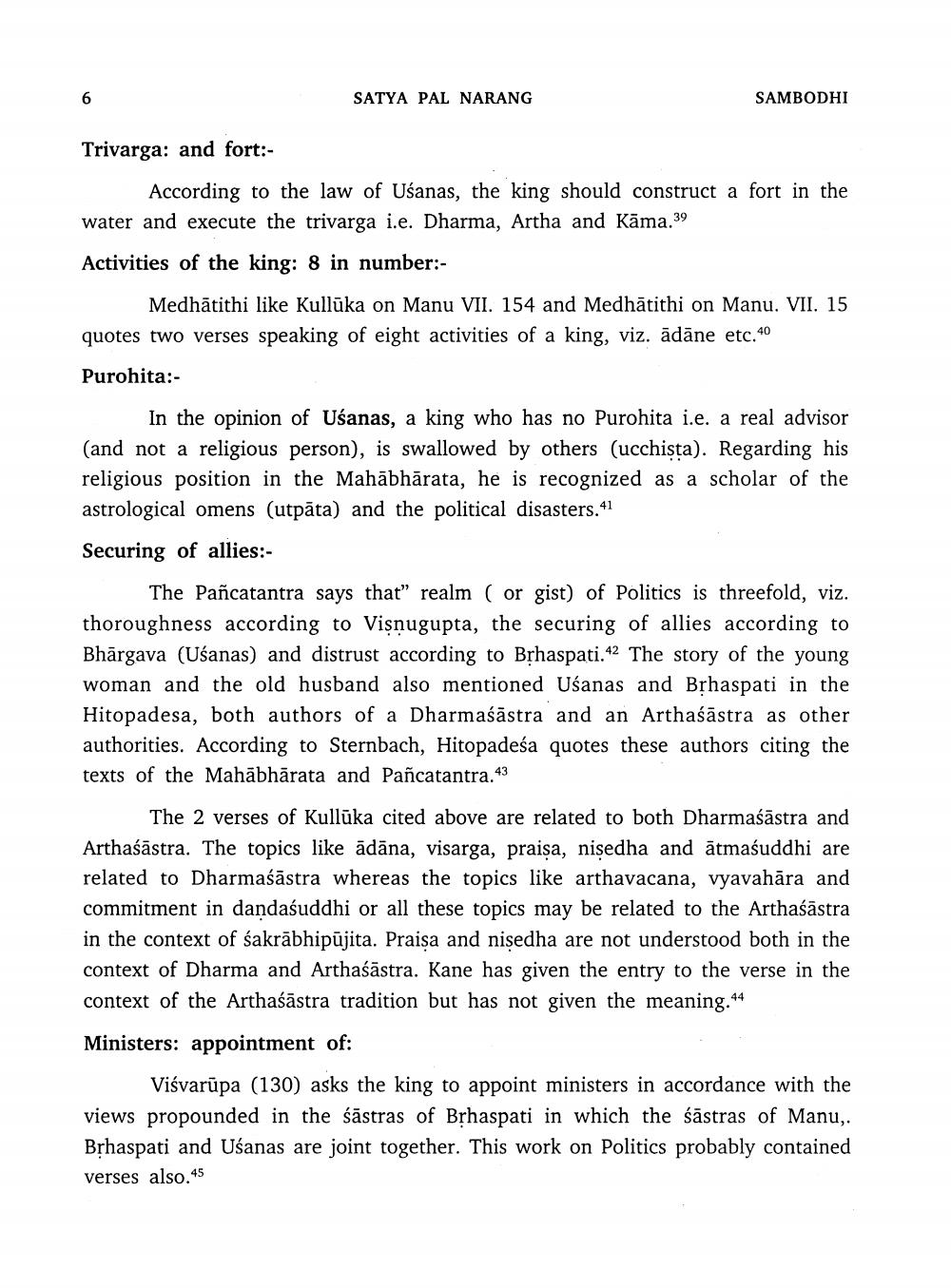________________
SATYA PAL NARANG
SAMBODHI
Trivarga: and fort:
According to the law of Uśanas, the king should construct a fort in the water and execute the trivarga i.e. Dharma, Artha and Kāma.39
Activities of the king: 8 in number:
Medhātithi like Kullūka on Manu VII. 154 and Medhātithi on Manu. VII. 15 quotes two verses speaking of eight activities of a king, viz. ädäne etc.40
Purohita:
In the opinion of Uśanas, a king who has no Purohita i.e. a real advisor (and not a religious person), is swallowed by others (ucchista). Regarding his religious position in the Mahābhārata, he is recognized as a scholar of the astrological omens (utpāta) and the political disasters.41 Securing of allies:
The Pañcatantra says that" realm ( or gist) of Politics is threefold, viz. thoroughness according to Visnugupta, the securing of allies according to Bhargava (Uśanas) and distrust according to Brhaspati. 42 The story of the young woman and the old husband also mentioned Uśanas and Bịhaspati in the Hitopadesa, both authors of a Dharmaśāstra and an Arthaśāstra as other authorities. According to Sternbach, Hitopadesa quotes these authors citing the texts of the Mahābhārata and Pañcatantra.43
The 2 verses of Kullūka cited above are related to both Dharmaśāstra and Arthaśāstra. The topics like ādāna, visarga, praisa, nisedha and ātmaśuddhi are related to Dharmaśāstra whereas the topics like arthavacana, vyavahāra and commitment in dandaśuddhi or all these topics may be related to the Arthaśāstra in the context of sakrābhipūjita. Praisa and nisedha are not understood both in the context of Dharma and Arthaśāstra. Kane has given the entry to the verse in the context of the Arthaśāstra tradition but has not given the meaning.44
Ministers: appointment of:
Viśvarūpa (130) asks the king to appoint ministers in accordance with the views propounded in the śāstras of Brhaspati in which the śāstras of Manu, Brhaspati and Uśanas are joint together. This work on Politics probably contained verses also.45




